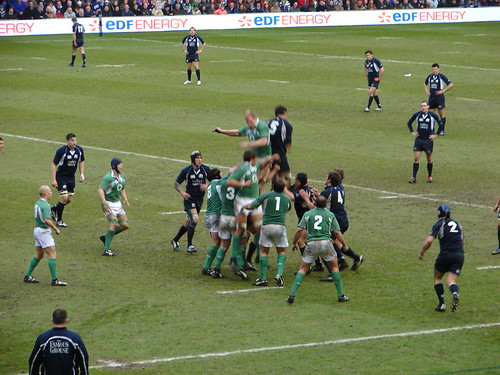
With England’s three match autumn series having now come to a close, it is time to reflect on what we have learnt and which players have excelled.
Despite being unable to replicate last year’s heroics of beating the irrepressible All Blacks, Saturday’s performance impressed many and was easily England’s best of the series. Even though they also achieved back to back wins against Australia and Argentina, neither performance was that impressive.
Beating a new look Australian side was important for England to show that progress had been made but was perhaps a touch fortuitous, with a contentious try the difference between the two sides. The Argentinian win showed very little, with England easily overcoming their downtrodden, inferior opposition.
Saturday’s performance against New Zealand, undoubtedly the best side in the world, was far more impressive, with England dominating large periods of the game, especially up front and has given England fans a fresh dose of optimism looking forward.
With the home World Cup now less than two years way, Stuart Lancaster will be starting to get a feel for his best team and squad, with the following players having done their chances no harm at all.
Dylan Hartley – The New Zealand born hooker impressed earning his 50th cap for England on Saturday, ending a perfect series for him. Whilst Lion and adversary Tom Youngs lost his mojo at the lineout, Hartley was committed in defence, impressive with ball in hand and impeccable at the set piece. Hartley has regained ownership of the jersey.
Courtney Lawes – Another Saints player who consolidated his position after falling down the pecking order earlier this year. The mercurial Lawes finally lived up to his billing, with bone shuddering tackles, dynamic line out work and athletic carries. Alongside the ever notable Joe Launchbury and Lion Geoff Parling, England look strong in the second row.
Chris Robshaw – After missing out on the Lions squad and having a summer away from rugby, Robshaw reinforced why he is the right man to lead England. He led from the front yet again with wholehearted commitment across the pitch, especially against New Zealand. His decision making seems to be improving, with the right balance being struck between taking points when on offer and going for the jugular. Ably supported by the equally impressive Tom Wood, the two are forming the basis of a formidable back row, capable of competing with the world’s best.
Billy Vunipola – Following his elder brother into the international reckoning, the Harrow schoolboy shone across the series with some fantastic displays of ball carrying. He never took a backwards step, drawing in defenders and consistently beating the gain line. His competition with Ben Morgan for a starting berth can only be healthy for England.
Mike Brown – England’s man of the series and the only back to really shine. Brown, who was played out of position throughout the Six Nations, made the full back role his own after three near faultless displays. He is ever dependable under the high ball, possesses a huge left boot and has a rare ability to find the smallest of gaps. Both Ben Foden and Alex Goode have done little wrong in an England shirt but Brown has undoubtedly made himself England’s first choice full back.
Looking forward, England are prioritising a Six Nations win and potential grand slam, with revenge for the thrashing they received in Cardiff high on the list. For this to happen, they will need to build on the last few weeks’ performances.
Up front, they appear to be heading from strength to strength, with healthy competition in most positions. However, the back line is a much greater cause for concern. Only Owen Farrell and Mike Brown would feel certain of a start in Paris on 2 February and Manu Tuilagi’s attacking impetus was sorely missed throughout the series, with England lacking the cutting edge.
Billy Twelvetrees did his reputation no harm, with some dynamic ball carrying but the jury remains out on Joel Tomkins. Solid in defence, Tomkins was totally ineffectual with ball in hand and showed he perhaps isn’t ready for this level yet. Whether he will get another chance to stake a claim remains to be seen.
Meanwhile, Chris Ashton appears a mere shadow of the player he was a few years ago, his attack limited and his defence at times feeble. It seems likely that if young flyers Christian Wade and Marland Yarde can keep scoring countless tries for their clubs, then Stuart Lancaster will have to give them a chance, to add some excitement and finishing prowess to the currently lacklustre England back line.
It was evident that here lied the real difference between England and the All Blacks on Saturday. England dominated possession but scored one try to their three with the added quality in the final phase the difference and showing why New Zealand are the world champions.
Overall, it has been a positive series for Stuart Lancaster’s men, who appear a courageous and united group. The forwards are developing into a formidable force capable of competing with the best in world rugby, and, though the backs still need to improve if grand slams and world cups are to become a reality, the gap is closing. The red rose may rise again.
Freddie Turner, Sports Team













